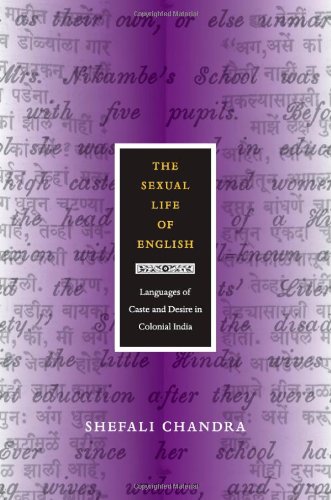Awards
International Dissertation Research Fellowship, Social Science Research Council and American Council of Learned Societies (1998-1999)
International Dissertation Research Fellowship, Social Science Research Council and American Council of Learned Societies (1998-1999)
Junior Long Term Fellow, American Institute of Indian Studies (1999-2000)
Women’s Studies Dissertation Writing Fellowship, Alice Paul Center, University of Pennsylvania (2001-2002)
Chimicles Fellowship for the Teaching of Writing, University of Pennsylvania (2002-2003)
Humanities Release Time, University of Illinois (2005-2006)
Illinois Program for Research in the Humanities, Faculty fellow (2004-2005)
List of Excellent Teachers, University of Illinois Urbana Champaign
Common Ground Teaching Innovation Award, Washington University in St. Louis (2011)
Arts & Sciences Summer 2012 Seed Grant, Washington University in St. Louis (2012)
James McLeod Teaching Recognition Award, ArtSci Council, Washington University 2015
Center for the Humanities Washington University, Faculty Fellow 2015
Humanities Summer Research, Center for the Humanities 2016
Roland Grimm Award for Research in Asia, Washington University 2018
Faculty Research Grant, Center for the Humanities Washington University 2018
Center for the Humanities, Reading and Writing Group Grant, "A History of the Present" 2018-present
Courses
Undergraduate
The Fictions of South Asian America
Globalization and its Discontents: History, Political Economy and Culture
The Meaning of Pakistan
Incredible India: Globalization and Desire
South Asia in the Wider World: World History, 1300-present
Loss, Longing and Absence: Narratives of the Partition of Pakistan and India
Survey of South Asia, 1500-present
Imperialism and Sexuality: Writing Intensive
Postcolonial/ Queer
Women Write India: Transnational Narratives of Caste, Class and Gender
The World, according to Gender (survey of world history)
Feminism and Postcoloniality (postcolonial, feminist and anti-racist theory)
Invented Traditions, Contested Modernities: Caste, Language and Religion
Colonialism and Culture. The British Empire, 1760- the present.
Graduate
From Decolonization to Globalization: How to End an Empire
Universal history and its Discontents : World, Global and Postcolonial histories
Postcolonial and Transnational Studies
Imperialism and Sexuality
En/gendering history: Postcolonial, Queer, and Transnational Histories



